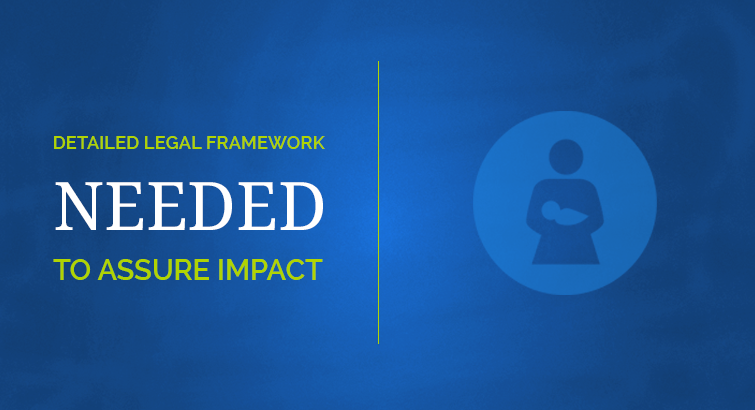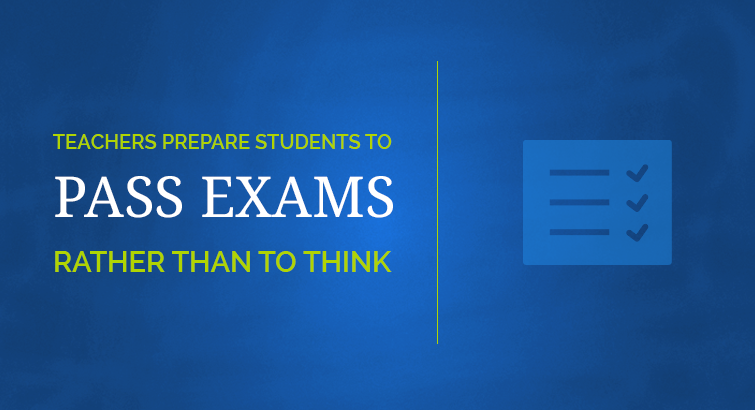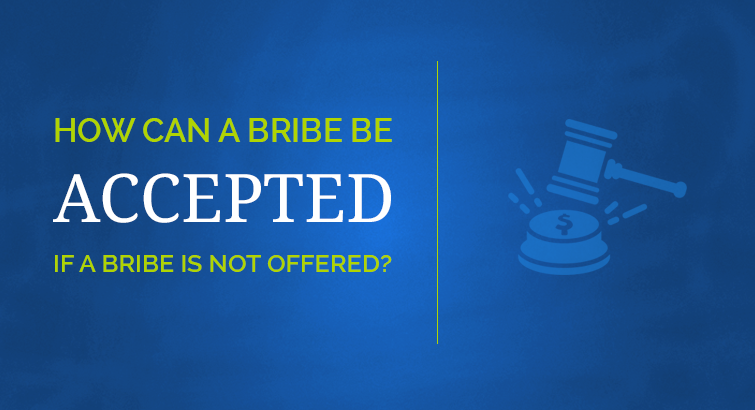|
The rights of women are protected under the Constitution and CEDAW (Convention on the Elimination of All Forms of Discrimination against Women), but women are still subject to prejudice and indirect discrimination. This brings up the debate about equality in society. The Constitution ought to be changed in a way that strives to achieve equality. This could in fact be achieved through inequality – providing women with additional statutory help and support to balance out the disadvantages that they face. Our Current Situation Guyana ratified without reservations the Convention on the Elimination of All Forms of Discrimination against Women [1] (CEDAW) in 1980. According to Art. 154A (1) of the Constitution of Guyana, the individual rights arising out of international treaties ratified by Guyana could be limited under Art. 154A (6), which provides that this could happen if two thirds of the MPs in the National Assembly vote in favor of such limitation. This renders the status of CEDAW in Guyana unclear. [2] No legislation in Guyana, neither the Constitution, nor the Equal Rights Act 1990, [3] nor the Prevention of Discrimination Act, [4] defines what is meant by discrimination against women – such definition exists under the CEDAW. Nevertheless, the Constitution contains several provisions on the rights of women. S. 29 provides that the participation of women in decision-making in the country should be encouraged. S. 149F establishes the right to equality for women and prohibits all types of discrimination on the basis of sex. S. 212Q and R establish the Women and Gender Equality Commission of Guyana [5] which is created to deal specifically with women issues and report to the National Assembly annually.[6] Its role is however, very limited and unclear. It does not have mechanisms to ensure that gender equality policies are implemented throughout the work of ministers and government offices. [7] REFERENCES (a)
[1] United Nations, Convention on the Elimination of All Forms of Discrimination against Women 1979 [2] Zou, X. Rapporteur on follow-up Committee on the Elimination of Discrimination against Women, ‘Follow-up letter sent to the State party’ YH/follow-up/Guyana/64, 10 August 2016. Available at http://tbinternet.ohchr.org/Treaties/CEDAW/Shared%20Documents/GUY/INT_CEDAW_FUL_GUY_24830_E.pdf [Accessed 3 April 2017], p. 1 [3] Equal Rights Act 1990, Act No. 19 of 1990. Available at http://blue.lim.ilo.org/cariblex/guyana_act7.shtml [Accessed 3 April 2017] [4] Prevention of Discrimination Act 1997, Chapter 99:09. Available at http://goinvest.gov.gy/wp-content/uploads/Prevention-of-Discrimination-cap9909.pdf [Accessed 3 April 2017] [5] Women and Gender Equality Commission of Guyana. Information available at http://www.wgec.gy/ [Accessed 3 April 2017] [6] Ibid. [7] United Nations, Committee on the Elimination of Discrimination against Women, ‘Concluding Observations of the Committee on the Elimination of Discrimination against Women: Guyana’ CEDAW/C/GUY/CO/7-8, July 2012. Available at http://docstore.ohchr.org/SelfServices/FilesHandler.ashx?enc=6QkG1d%2fPPRiCAqhKb7yhsldCrOlUTvLRFDjh6%2fx1pWBdSsWabnlQPGDrCr0bgA9TVT8qrLt9S8Vn%2bSb2Uv1snuQrCJDWFadLs7tMBuf1IH0H4Rof8nVVqCfHC8i9FaAd [Accessed 3 April 2017] Despite the fact that the Constitution and several other acts provide for gender equality and women rights, which is in stark contrast with LGBT rights, the problems for women in the Guyanese society stem from the deeply rooted stereotypes about the traditional roles of women in society, including reproduction, child rearing, caring for children and elderly dependents. Facilities for day care and senior care stand to ameliorate the need for home care. There is no comprehensive strategy or legal framework to deal with stereotypes, which is a requirement under the CADAW. [8] Indigenous women are marginalized as the most vulnerable group. Like other rural citizens, they have difficulty in accessing justice. There is a lack of permanent magistrates’ courts in rural areas. [9] Their socio-economic development is hindered by indigenous communities’ rules which force them into early marriage and pregnancy that interrupts their education. [10] Such customs and practices perpetuate discrimination against women, which puts them in a disadvantaged position in regards to education, public life and decision-making. [11] There is also a language barrier. Indigenous women often do not speak English as a first language and are likely to convey their beliefs less effectively by various women advocacy groups. [12] REFERENCES (B)
[8] United Nations, Committee on the Elimination of Discrimination against Women, ‘Concluding Observations of the Committee on the Elimination of Discrimination against Women: Guyana’, p. 3 [9] Ibid., p. 2 [10] US Aid, ‘Democracy, Human Rights, And Governance Assessment Of Guyana’, Final Report, March 2016. Available at https://gy.usembassy.gov/wp-content/uploads/sites/117/2016/09/Final-Guyana-DRG-Assessment-Public-Version-March-2016.pdf [Accessed 3 April 2017] [11] Wills, D. ‘#LifeInLeggings: A growing movement for women’s rights in a ‘patriarchal’ Guyana’, Demerara News (online), 12 March 2017. Available at http://demerarawaves.com/2017/03/12/lifeinleggings-a-growing-movement-for-womens-rights-in-a-patriarchal-guyana/ [Accessed 3 April 2017] [12] US Aid, ‘Democracy, Human Rights, And Governance Assessment Of Guyana’, Final Report, March 2016. Available at https://gy.usembassy.gov/wp-content/uploads/sites/117/2016/09/Final-Guyana-DRG-Assessment-Public-Version-March-2016.pdf [Accessed 3 April 2017] Another problematic group of women are the victims of domestic violence. As of September 2016, there were 204 reports of rape and only 36 people charged for it.[13] The small numbers show that many cases of rape and domestic violence remain unreported. [14] Furthermore, sexual violence is culturally accepted in some indigenous communities. [15] Controlling behavior or coercive control which is an expression of modern slavery is not criminalized in Guyana. [16] Yet, it is responsible for the high suicide rate, the widespread use of Valium and other sleeping medicines among women. [17] The percentage of women in the work place is significantly lower than that of men – 44 per cent of women are in employment, compared to 83 per cent of men as of 2014. [18] There is a concentration of women in the informal sector where there is no social security or benefits. Many women also perform unpaid family work, especially in the agricultural sector. [19] Women are paid approximately 61 per cent less than men for the same work. [20] Applying Theory to Find Solutions The case with women’s rights in Guyana relates to the jurisprudence debate about formal justice and equality. While for the Greeks justice embodied the idea of inequality, for modern law, equality is understood as the very essence of justice. The current state of the law on women’s rights in Guyana, for example, does not provide for equality and therefore, it is unjust. REFERENCES (C)
[13] United States, Department of State, ‘Guyana 2016 Human Rights Report’. Available at https://www.state.gov/documents/organization/265804.pdf [Accessed 3 April 2017], p. 10 [14] United Nations, Committee on the Elimination of Discrimination against Women, ‘Concluding Observations of the Committee on the Elimination of Discrimination against Women: Guyana’, p. 10 [15] Ibid. [16] Chabrol, D. ‘Achieving Women’s Rights Still an Uphill Battle- Guyana Human Rights Association’ [17] Ibid. [18] United States, Department of State, ‘Guyana 2016 Human Rights Report’, p. 11 [19] United Nations, Committee on the Elimination of Discrimination against Women, ‘Concluding Observations of the Committee on the Elimination of Discrimination against Women: Guyana’, para. 31 [20] United States, Department of State, ‘Guyana 2016 Human Rights Report’, p. 11 However, equality is not easy to cultivate or impose as people are not equal – they have differences among themselves. [21] Mechanical equal distribution fails to take into account these differences. [22] Individuals have different desires and therefore, it is problematic to claim that they ought to receive equal. This problem is solved differently by various theorists. Libertarians such as Hayek [23] by referring to John Locke argue that the core rights are freedom and property. Therefore, they are against redistribution and social justice and for the free market. Market forces, however, are not capable of regulating society by themselves, although they are a powerful factor as free markets have uneven effect over various societal groups. For instance, the need for cheap labor in the free market puts many women in Guyana in a disadvantaged position as unpaid work positions are typically taken by women. Unlike libertarians, the utilitarian school of thought is for equality as everyone counts as one and since no one is more than one, everyone’s interests need to be treated equally regardless of their contents. [24] This is, however, not a viable philosophy as it contradicts with everyday understanding of equal treatment as it basically states that selfish interests should be respected equally with all other interests. [25] The most suited contemporary philosophy that explains what needs to be pursued when enacting legislation on equality is the equality of welfare and resources theory of John Rawls [26] and Ronald Dworkin. [27] According to the two, equality amounts to equality of opportunity – the same initial expectations of basic goods. This theory accounts for individual choices – unequal redistribution REFERENCES (d)
[21] Gosepath, S. ‘Equality’, Stanford Encyclopedia of Philosophy (online), 27 June 2007. Available at https://plato.stanford.edu/entries/equality/ [Accessed 3 April 2017] [22] Ibid. [23] Hayek, F. The Constitution of Liberty (London, Routledge and Kegan Paul, 1960) [24] Bentham, J., cited in Gosepath, S. ‘Equality’ [25] Dworkin, R. Taking Rights Seriously (Cambridge, Harvard University Press, 1977), p. 234 [26] Rawls, J. A Theory of Justice (Cambridge, Harvard University Press 1999) [27] Dworkin, R., ‘What is Equality? Part 2: Equality of Resources’ 10 Philosophy and Public Affairs 283 is justified if it results from individual choices, but not when it is based on innate provisions, gifts and luck. [28] A proof that this theory works for Guyana is that when placed in the same conditions and given the same opportunities in higher education, women significantly outperform men, which bolsters their position and alleviates some of the inequality against women. [29] Broad declaratory provisions such as those in the Constitution of Guyana do not stand a chance of promoting justice for women. Justice needs to be strengthened by enacting more positive law, protecting women’s rights. This approach has stood the test of time. For example, the US, which was established not that long ago from a historic perspective – in 1776 enshrined principles and value judgments in its Constitution and Bill of Rights, e.g. freedom of speech is an absolute priority. The Constitution of Guyana needs much more detail on the principles relating to women. Any subsequent legislation that contradicts these principles will then easily be struck down as unconstitutional. This is just the beginning or solving the problem of women in Guyana. There is a lot of work to be done by non-governmental organisations and the government in order to tackle the problem with deeply embedded stereotypes, further enhanced by indigenous cultures. To improve equality and thus, justice in the Guyanese society, the Constitution needs to be reformed by adding detailed provisions on the rights of women, rather than mere declarations. Stating, for example, that when different interests are balanced, women’s rights will be prioritized, will eventually turn protection of women of value for the society. REFERENCES (e)
[27] Ibid, p. 290 [28] Government of Guyana, Ministry of Education statistice . Available at http://www.education.gov.gy/web/index.php/downloads/cat_view/8-downloads/60-digest-of-education-statistics [Accessed 3 April 2017]
0 Comments
Albert Einstein, arguably the most famous scientist of the 20th century, frequently quoted on the subject of education and science, believed that “Education is not the learning of facts but the training of the mind to think.” This unfortunately is not the case of Primary and Secondary School education in Guyana. As a tertiary educator, I have the misfortune of witnessing our youth enter university without learning ‘how to learn’, how to analyse information and most importantly, how to think critically. The actual definition of critical thinking varies from source to source and depending on the discipline, critical thinking requirements can include a number of variables. However, at the heart of the concept, a critical thinker should be able to deduce consequences from what he/she knows, how to make use of information to solve problems, and to seek relevant sources of information to inform themselves. The majority of students entering University, especially those entering straight out of CSEC, lack the necessary skills to do just this. My colleagues and I often discuss this subject and how to overcome these challenges, as many of us agree the hardest part of our jobs in tertiary education is transforming our students’ mentality from being fed spoon by spoon what is required for ‘the exam’ to being shown how to use the spoon, the location of the necessary resources and giving students the choice whether they want to consume and how much they want to consume. Part of the problem arises from the pressure placed on our primary and secondary schools to ensure their students do well at national and regional assessments. In the quest to garner double digit grade ones at CSEC, to get the top student in the country or the Caribbean, our teachers prepare students to pass and do well at exams rather than learning to think, analyse and ask questions. If we look at many 5th form classes in Guyana, class time is spent working questions from past papers and looking at the necessary approaches for gaining the highest marks on recurring question types. This has inevitably led to many students lacking the critical thinking and analysis skills that are necessary for success in higher education and the workplace, as independent discussions, question and answer sessions and problem solving exercises are infrequently done. Furthermore, our students have been trained from a young age not to ask questions, but to sit quietly and listen. While we may utilize this as a method of instilling discipline in our young, we should recognize that this suppresses our inherent nature to question and to fully conceptualize an idea by ensuring our understanding of said idea is correct. The Silver Lining I still have many colleagues who are dedicated to educating our youth, instead of just certifying them. During our non-teaching time, we sit and brainstorm ways in which we can help our students to be better prepared for the working world, not only technically but on a more holistic level, so that they can tackle any challenge posed to them. The few students who are able to adapt to the required method of learning at University, which requires independent research, reading on their own time and being able to apply the knowledge gained to solve issues and problems, are the ones to succeed in higher academia, in the workplace and in life generally, as the right mind set is developed for life’s many challenges. In fact, one of the best students currently in our Faculty was not a star CSEC student. He did well enough at the sitting, but his true academic success has come at University where he has been able to adjust to a higher thinking style and can be relied upon to steer discussions in the most thought-provoking directions. He is well on his way to being one of the best graduating students at the University in a year’s time and should be the epitome of the kind of individuals Guyana needs to produce from our education system. Call for Change I want to issue a call for an overhaul in our education system in Guyana, where our teachers should be encouraged to focus on educating our young, instead of preparing them for an exam. While this is an ambitious task which will require considerable resources, the following simple modifications may be employed in the meanwhile:
We need our future generation to solve some of the problems created by past and current generations, in the most resourceful and innovative ways. We must encourage free-thinking, creativity and most of all critical thinking if we intend for humanity to survive another thousand years on this Earth.
There is perhaps no more stark a reminder of our need for healing in Guyana than the situation on our roads. Reduced care and concern for one another is evident everywhere, and is most obvious when accidents and deaths occur. In 2016, 128 persons died in road accidents. The traffic department reported that over 26,000 cases (yes, 26,000 – almost one case for every 30 Guyanese) were “made out against errant drivers” for speeding. There were 3,317 cases of driving under the influence of alcohol and 4,111 cases of overloaded minibuses, to name just a few breaches. Many might be tempted to ask “what are the authorities doing about this situation?” It is indeed a necessary question. We taxpayers pay all the costs to run the Presidency, Parliament, Ministries, the traffic department and, indeed, the entire operations of the State. We have a right to expect services from public servants after all. It is also true that if we had a more predictable and stern response to breaches from the authorities, including the suspending of licences and the increasing of insurance premiums, drivers would be significantly encouraged to improve their driving. However, before we do the easy thing and curse at the government and the politicians, consider some other questions: who put that drink in the drunk driver’s mouth? Who was mashing the accelerator? Did any member of the government or politician encourage you to jump the traffic lights? Heal Guyana has a simple, honest and profound slogan: “Starting with ourselves.” This slogan is consistent with the teachings of all Guyana’s religions in decrying hypocrisy and our all-too-human tendency to demand from others what we do not demand of ourselves. Before we look to blame the authorities, therefore, we the road users need to take responsibility for our own conduct. Very few problems on the roadways speak to our complicity more than the issue of police corruption, which is a very popular complaint. How can a bribe be accepted if a bribe is not offered? The good news is that many citizens are demonstrating a willingness to do the right thing. The average driver stops at red lights, joins a line, and does not “undertake.” The tooted exuberance as the light turns green is not really a display of rudeness – it’s a celebration, befitting our happy culture. But on a serious note, the next time you are on the road check how many drivers are being courteous to one another: allowing minor road traffic to enter major roads, putting on their hazard lights and stopping for pedestrians to cross. Even minibuses will have the conductor walking children across the road. I will never forget the time I left my car in one lane at a traffic light to help a very slow-moving old lady cross the road. She moved so slowly that the lights went from red to green to red and then to green again, before she could finally make it to the other side. I was sweating, fearing the hostility I would endure from other drivers due to the long line of blocked traffic I had caused. But no: not a horn blew, not a single curse was uttered. Our glass is still half full. Despite the challenges, Guyana is still a beautiful place and Guyanese are still a beautiful People. Let’s take those small steps toward caring for one another on the roadways and across the country, starting with ourselves.
|
About Us:Heal Guyana is a registered, not-for-profit organisation which functions as a civil society platform that focuses on empowering Guyanese and influencing citizens toward positive behavior change. Disclaimer:The views expressed herein are those of the Author; they do not necessarily reflect the views of Heal Guyana or its Executives. |








